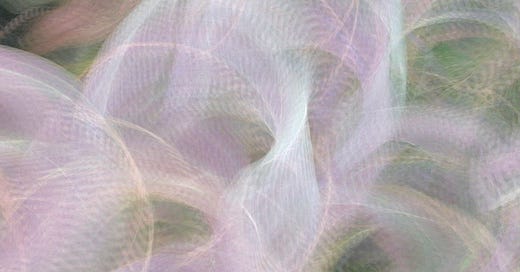“Shape-shifting begins with - is not responsive to - what truly is, shaping the world rather than dominating it. We shape the world with our imaginations.” ~ Laura Sewall, Sight and Sensibility
Imagination is an image in the mind of what might be possible, and therefore it’s a tool of vision. And, it’s not just for creative artists, but something each of us uses every single day, for example, in planning dinner or dreaming of next year’s vacation or jump starting a new career. Each of us imagines and then acts, and in the process, shapes the world, for good or ill.
Sewall calls it ‘reversing the world,’ a restructuring of habitual or patterned ways of being.
“It’s the ability to both free one’s view from the conditioned and programmed worldview - unpatterning the assumed world - and artfully stitching it back together with the power of a cultivated imagination; informed and shaped by the integrity and wholeness displayed by the visible world.”
We’ve been practicing this all year, learning to pay attention to what’s right in front of us - not what we want to be there, or what we think is there. Letting go of preconceived ideas, opinions, and judgments, returning to a beginner's mind. All of these practices cultivate our imagination.
What you imagine may seem unrealistic, pie in the sky, but isn’t that what imagining is all about? Creating something that hasn’t yet existed? Rebecca Solnit explains this well (via Brain Pickings).
“A student came into one of my workshops bearing a quote from the pre-Socratic philosopher Meno, ‘How will you go about finding that thing, the nature of which is totally unknown to you?’ This question struck me as the basic tactical question in life. The things we want are transformative, and we don’t know or only think we know what is on the other side of that transformation.”
There are many ways we live now that would have been unimaginable decades ago. What is most important is letting your imagined reality guide your choices today, whether they come to fruition or not. What are you imagining these days?
Practice
Although Albert Einstein was a scientist, most famous for discovering the theory of relativity. He’s also famous for this quote, “Imagination is more important than knowledge.” Einstein used his knowledge to activate his imagination. One of his practices for sparking the imagination is called combinatory play, where he took ‘play’ breaks to let ideas percolate. He liked to play the violin or take a walk.
There are many ways to practice combinatory play - painting or drawing, doing yoga, or just daydreaming. What is your preferred mode for taking a break and giving your mind a rest? Do you build this into your everyday life? (Source: Evernote)
This past year has jolted many of us into seeing our world more clearly and imagining a different future. What is one change you would like to see post-pandemic? How do you imagine that might happen? What is one thing you will start doing or stop doing to help it along?
Resources
Imagination: Creating a New Reality by Laura Sewall
An interesting guide to accessing imagination by Scott Jeffrey





Just read this on the capacities of imagination - fantasy, awe, reverie, foresight, fancy, vision, play, and invention. What’s your go to?
From the Declaration of Enchantment: https://chalquist.com/declaration-of-enchantment/